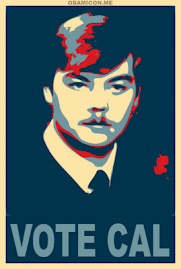
I was reading a review of Jay Parini's - 'The Passages of H.M.' about the author Herman Melville and read that the author was "a lousy husband, a bullying father, a egomaniac - a Moby-sized dick - but he was also tortured, brilliant and sexually confused." That sounded alot like his most famous creation, Captain Ahab from the novel, 'Moby Dick'.
I know this will come a shock to many of you (since I am such a lover of the sea and it's tales) but I have never seen the movie 'Moby Dick'. Like a lot of people, I tried to get through the book when I was a teen but it was a slog. Too much stuff about the minutia of whale hunting. I hoped the movie would get right to the good stuff.
Gregory Peck is of course Captain Ahab and Richard Baseheart is Ishmael, the one whose eyes we see the story through - him and the sailors of the Pequod who have the misfortune of being between Ahab and his white whale. The mythical sperm whale maimed Ahab on an earlier voyage, we are told, and now Ahab has only one thought - revenge.

The story is heavy with allegory about obsession and the hell that it can drive men to. It addresses issues of god and revenge, individualism vs the common good. In fact any of the great questions of man can be found within the pages of the book.
The great director John Huston made this picture as he has an eye for great sweeping vistas that he showcased so well in his movies about Calvary men and their battles with the Indians of the old west. Ray Bradbury wrote the screenplay and you can see many themes in the movie found in his own works of fiction - such as the oppression of authority over the common man.
Peck is terrific in this. He brings a religious zeal to his mission that is the kind of pure batshit craziness that you want in a big tale like this. He and everyone else speak in great poetic monologues.

The cinematography and the effects are good for the mid 1950s. You feel what life is like on a whaling vessel. This was dangerous work.
The men go out first in tiny boats to harpoon the whale and then let it pull them until it tires. Often sailors would get thrown from the boats and lost before the whale was ever brought down.
Also, chasing a whale down with only manpower and ores seems like an impossible feat today. It must have been very rewarding to actually bring a whale on board ship. Then, of course, the blubber was boiled down for whale oil that powered the lamps of the world.
The scene in the storm is particularly gripping as men climb the ropes in a fierce gale to take down ripped canvas. I am sure many of the extras playing the roles of ordinary seamen were wetting themselves even from the safety of a studio lot.
Ahab has a map that charts the whale's migratory patterns. With such knowledge he can make a great deal of money for the boat but he is only concerned with finding his white whale. He abandons easy catches to make his appointment with destiny. He cares not for money because the great fish has taken his soul and he will have it back or die in the attempt.
Nothing is more important and it has twisted Ahab and puts him in direct confrontation with his God and faith. Soon, all the problems that befall the ship are blamed on Ahab's perceived blasphemy but only from Starbuck, his first mate. The rest of the crew are hypnotised by the charisma of Ahab and would follow him to the gates of Hell itself. They will get their wish.

One of the great things I noticed is the Ricardo Montaban quotes Melville is his quest for Admiral Kirk in Star Trek 2 - a perfect comparison for Kirk is Khan's 'white whale'. And like Ahab, his quest for vengeance can only end in his death.


































































































%20SDTB.jpg)











3 comments:
Yeah, the book is very dense and sometimes difficult to wade through. Huston's movie is teriffic. Orson Welles has a brief walk-on role as the preacher in the beginning which is very powerful nevertheless.
It was remade for TV not too long ago with Patrick Stewart as Ahab, but that version was mostly forgettable.
Melville and Moby Dick references tend to pop up everywhere.
My parents brought me to the movies to see it in '58 I think. I was about 8 yrs. old and it really turned me on to adventure as a kid. I read the book about 10 yrs. later. It is a bit daunting but well worth the read.
Peck is the man. We saw this in high school....but yeah those quotes from Khan have stayed with me.
"From hells heart I stab at thee..."
Post a Comment